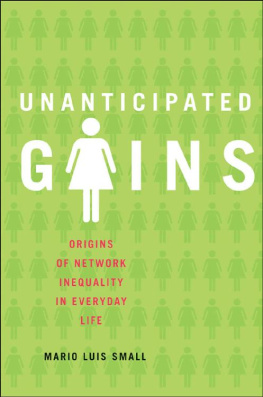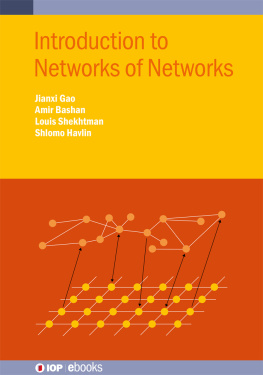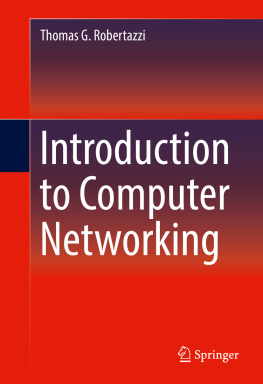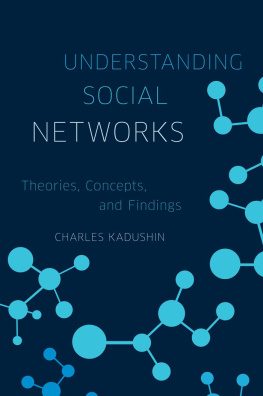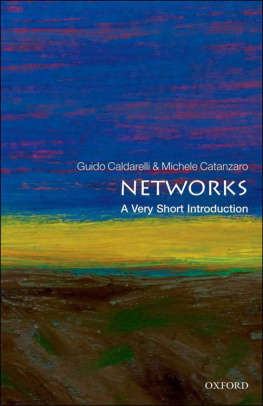Unanticipated Gains
Unanticipated Gains
Origins of Network Inequality in
Everyday Life
Mario Luis Small

2009

Oxford University Press, Inc., publishes works that further
Oxford Universitys objective of excellence
in research, scholarship, and education.
Oxford New York
Auckland Cape Town Dar es Salaam Hong Kong Karachi
Kuala Lumpur Madrid Melbourne Mexico City Nairobi
New Delhi Shanghai Taipei Toronto
With offices in
Argentina Austria Brazil Chile Czech Republic France Greece
Guatemala Hungary Italy Japan Poland Portugal Singapore
South Korea Switzerland Thailand Turkey Ukraine Vietnam
Copyright 2009 by Oxford University Press, Inc.
Published by Oxford University Press, Inc.
198 Madison Avenue, New York, New York 10016
www.oup.com
Oxford is a registered trademark of Oxford University Press.
All rights reserved. No part of this publication may be reproduced,
stored in a retrieval system, or transmitted, in any form or by any means,
electronic, mechanical, photocopying, recording, or otherwise,
without the prior permission of Oxford University Press.
Library of Congress Cataloging-in-Publication Data
Small, Mario Luis.
Unanticipated gains : origins of network inequality in everyday life / Mario Luis Small.
p. cm.
Includes bibliographical references and index.
ISBN 978-0-19-538435-2
1. Social networks. 2. Social capital (Sociology) 3. Day care centersCase studies.
I. Title.
HM741.S585 2009
302.3082dc22 2008041902
9 8 7 6 5 4 3 2 1
Printed in the United States of America
on acid-free paper
Preface
How well people do depends on the range and quality of their connections. The thousands of books and articles spawned by social capital theory have probably convinced even the toughest skeptics that better connected people enjoy better health, faster access to information, stronger social support, and greater ease in dealing with crises or everyday problems. It has convinced many that to understand inequality in well-being we must understand something about the structure of peoples connections. And it has inspired hundreds to study the formal structure of these networks, to uncover the patterns in the systems of nodes (people) and ties (relations) that constitute an actors network.
But networks do not arise out of thin air. Peoples networks emerge over the course of their routine activities, in the everyday organizations where those activities take place. Every day, women and men drop off their children in childcare centers, head to work in office buildings, eat lunch in cafeterias, pick up food in grocery stores, get manicures in beauty salons, and attend PTA meetings in schools. They kneel down to pray in churches among other believers, play sports in gyms with other sports fans, and discuss politics in neighborhood associations with other concerned residents. Networks do not exist in a vacuum; they are formed and sustained in offices, schools, churches, country clubs, barber shops, gyms, community centers, universities, political clubs, YMCAs, childcare centers, and countless other everyday organizations where people encounter others.
This books point of departure is the proposition that these everyday organizations matter to not merely the size but also the nature, quality, and usefulness of peoples networks. Routine organizations are not merely places, sites where clusters of nodes and ties happen to exist. Instead, they constitute sets of institutional rules, norms, and practices that to lesser or greater extent affect how their members or participants interact, form personal connections, think of one another, build trust, develop obligations, and share information and other resources. In some organizations, patrons routinely encounter many other people; in others, they meet few. In some, they are subject to formal and informal rules that affect the obligations they feel toward members; in others, they are not. These and many other dynamics affect the nature of the ensuing social relations. That is, the organizations shape, in varying degrees, their patrons social capital.
This book introduces a perspective on inequality in well-being that considers how peoples social capital responds to organizational conditions. Rather than conceiving of networks primarily as nodes and the ties between them, it conceives them mostly as sets of context-dependent relations resulting from routine processes in organizational contexts. Prioritizing context over structure, the book proposes that how much people gain from their networks depends fundamentally on the organizations in which those networks are embedded. It also proposes that individuals receive distinct advantages from being embedded in effective brokersorganizations that, both intentionally and unintentionally, connect people to other people, organizations, and their resources. This book, following the tradition of studying the unanticipated consequences of social action, documents the network advantages that people may gain from doing little more than participating in the organizations that structure their day-to-day lives. In so doing, it identifies many of the often hidden mechanisms that sustain social inequality.
The book illustrates and develops this model through what might appear to be an unlikely case: a study of the experiences of scores of mothers whose children were enrolled in New York City childcare centers. These mothers varied in race, class, education, and lifestyle; most of them worked, but they had little else in common. The book documents that, because of the conditions of their centers, many of these mothers expanded both the size of their networks and the resources available through them. At the same time, the book reveals that how much, if anything, mothers gained depended on the institutional practices of their respective centers. And it shows that the practices of the centers often resulted from larger factors such as policies of the state, something far removed from the mothers everyday lives. To help assess these mothers experiences, the book also analyzes a national survey of 3,500 urban mothers and a New York City survey of nearly 300 centers. To help assess whether the experiences of these mothers were unique, the book compares its findings to published studies on how colleges, churches, beauty salons, and many other organizations affect various aspects of the networks of their members. The results make clear that the experiences of the mothers are not unique, suggesting that differences in well-being arise, in part, because of differences in the organizations in which peoples networks are embedded.
Writing this book would have been impossible without the help of many people and institutions. I received invaluable course relief from Princeton University and the University of Chicago during the research and writing of the book. Semester-long leaves taken at Columbia University and at New York University were instrumental. I thank Irwin Garfinkel at Columbia and Dalton Conley at New York University for making the leaves possible. Parts of this study were funded by grants from Princeton University and from National Institute of Child Health and Human Development (grant 3 R01 HD03913503S1; Christina Paxson, principal investigator). Sara McLanahan provided invaluable help early on, including the opportunity to add questions to her national survey of mothers of newborns. Christina Paxson allowed me to join one of her grants, and to make this possible did more than anyone could ask. Without Sally Waltmans expert assistance, the survey of New York City childcare centers would not have been successful. Jean Knab and Kevin Bradway provided expertise assistance on the intricacies of the Fragile Families data set. Emily Art, Martha Biondi, Kate Cagney, Cathy Cohen, Michael Dawson, Edward Laumann, Jennifer Lee, Devah Pager, Nicole Marwell, Omar McRoberts, Yasmina McCarty, Jamila Michener, Sabrina Placeres, Sandra Smith, Celeste Watkins-Hayes, and Chris Winship read several early chapters, and in some cases entire drafts. Several anonymous reviewers provided invaluable feedback. Several research assistants were instrumental to the completion of the work. Laura Stark worked diligently on this project when it was nothing more than a hunch. Erin Jacobs and Rebekah Massengill were hard-working, astute, and thoughtful researchers. My original plan, when I still entertained the fantasy that the book would be finished in two years, was to coauthor the book with the two of them. The changes in the book and the shifts in their interests did not make this possible. However, I am happy that at least one coauthored paper resulted from our collaboration. That paper was published in the September 2008 issue of
Next page
